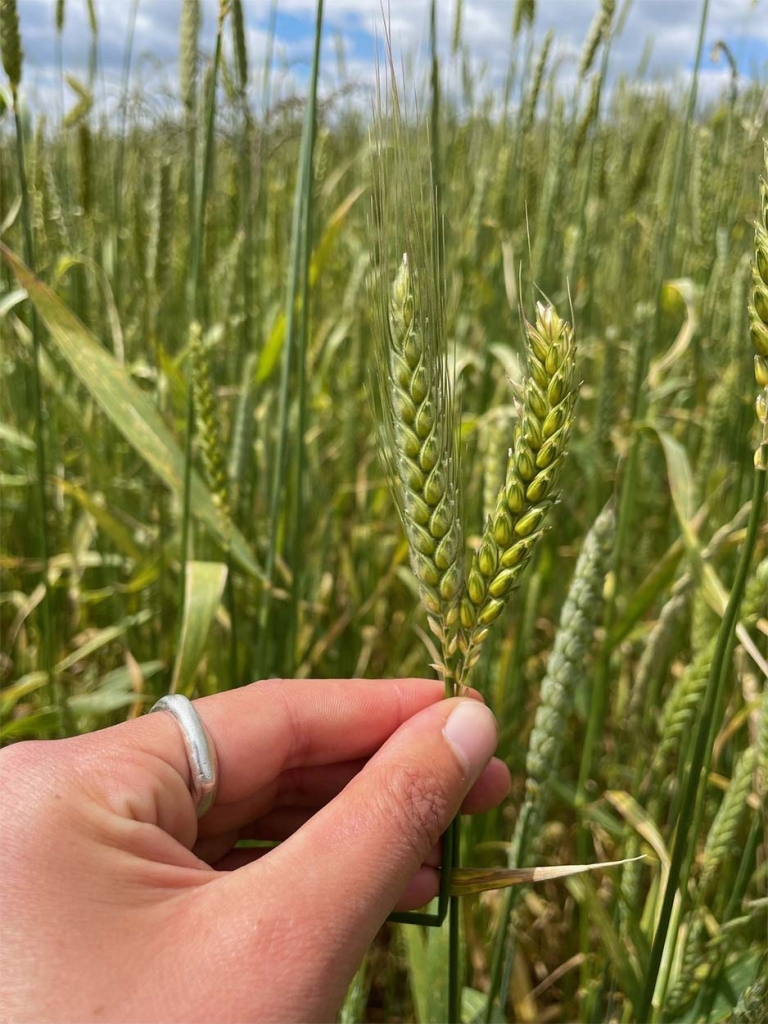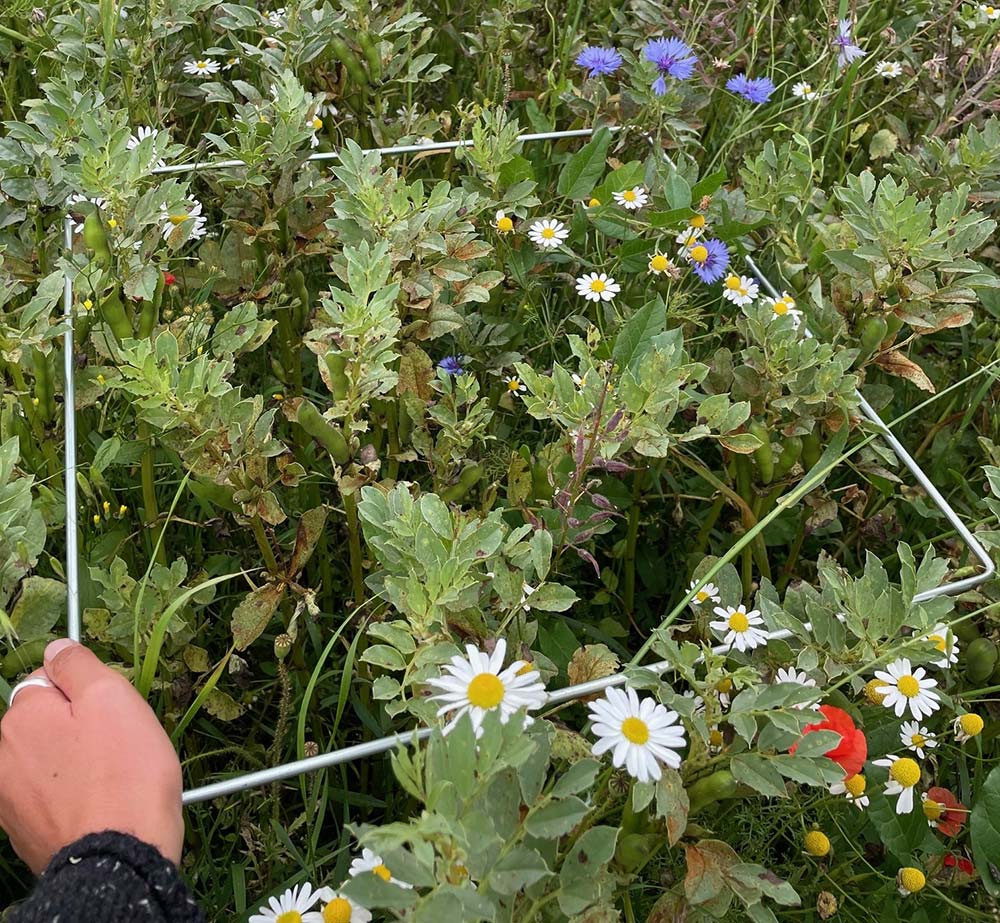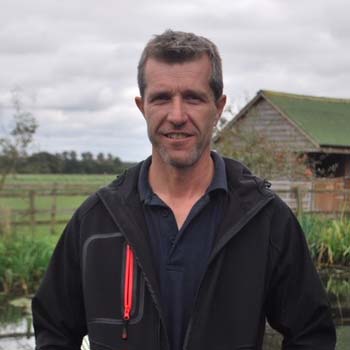Donate now to redesign agriculture for greater diversity, resilience and sustainability
Sowing Seeds of Change
Farming systems based on agroecology such as organic, seek to build an alternative model to food production through biodiversity-rich practices and low external inputs. By embracing crop diversity, we can redesign agriculture to be more resilient, sustainable, and better able to support both our environment and our communities.
For decades, crop varieties have been developed to produce high yields in farming systems that are highly standardised and require inputs of pesticides to control weeds, diseases and pests, and synthetic fertilisers to provide crop nutrition.
This industrialised approach to farming has been effective at providing high volumes of food but has come at a cost to our environment and threatens food security and our health. It has also put an increasing concentration of power and control of our food system in the hands of a few large, multinational corporations.
At the Organic Research Centre (ORC), we have been tirelessly working with farmers to provide practical solutions and have been champions of functional biodiversity for more than 40 years.
This appeal is to raise funds to strengthen, share and expand our crop diversity work.
Follow our progress

The Problem

In pursuit of higher yields, our conventional input-intensive and highly standardised systems of farming have led to:
- Soil erosion and loss of nutrients
- Loss of agrobiodiversity – the diversity of genetic resources (varieties, breeds) and species used for food, fodder, fibre, fuel and pharmaceuticals.
- Biodiversity loss
- Reliance on pesticides, herbicides and synthetic fertilizers
- Negative impact on water and carbon cycles
Seed/Crop breeding:
Most seeds have been bred for conventional farming systems and over the years have been refined to a few high-yielding crop cultivars. These lack the traits needed for success in organic and low input systems, particularly weed competitiveness, well-developed root systems able to access nutrients from soil reserves, and have not been developed for their ability to form associations with beneficial soil microorganisms. Gene editing and other GM techniques threaten to erode the genetic diversity of our crops even further.
Current legislation mandates the use of organic seeds in certified organic farming. If we are to meet the demand of the growing sector, organic seed production needs to grow up to sixfold by 2030!
Crop system design:
Conventional farming systems have been designed for optimising crop productivity. They are highly standardised, often growing the same crop year after year, depleting the soil of all its nutrients and microorganisms. Improvements have been made with crop rotations but more needs to be done to diversify rotations by incorporating intercropping and cover cropping practices for greater sustainability and resilience.
The Solutions

Embracing genetic diversity: population breeding and variety trials
Through large scale EU projects including LiveSeeding, LIVESEED, DIVERSIFOOD, SOLIBAM and Defra funded COBRA and Adaptive Winter Wheat Populations, ORC have pioneered research on plant populations (Heterogeneous Material) in the UK e.g. the development of ORC Wakelyns Population (YQ).
Evolutionary or population breeding offers an alternative approach to variety development, that fosters diversity and the potential for adaptation to natural and human selection.
In addition to our pioneering plant population research, we have been working with farmers to test the performance of different crop varieties in organic systems. Past project work including LIVESEED and LiveWheat,has proven the value of our decentralised, participatory approach to variety trials – working with a network of farmers across a range of farm environments.

Diversifying crop system design: intercropping and cover cropping
ORCs engagement in large EU collaborative projects including DIVERSify, DiverImpacts, TILMAN-ORG and OSCAR have developed our understanding of both the benefits and challenges of intercropping and cover cropping practices. We have led the way in designing diverse cropping systems that minimise interspecies competition with companion crops, living mulches or weeds. Our Living Mulches project addresses the need in conventional farming systems to reduce reliance on glyphosate among no-till farmers.
Sharing our research findings to facilitate change:
Where funding allows, communicating our findings is built into our research, whether it be one to one with a farmer as part of a project, or to a larger audience at conferences, via webinars and social media. We have developed tools to aid decision making such as The AgroDiversity Toolbox and published reviews demonstrating real world application such as Waykelyns Agroforestry: Resilience through diversity. All our resources are available on our website via our resources libraryand on Agricology to reach a wider audience
What more needs to be done?
With your help ORC will add value to, and build on, existing crop diversity work to redesign agriculture for greater resilience and sustainability by continuing to:
- Develop seed breeding strategies that embrace genetic diversity in partnership with farmers, suited to organic systems of production, and owned/controlled by farmers.
- Create and test diversified cropping systems including intercropping and cover cropping in rotations to help increase yields, reduce weeds, improve soil health, increase biodiversity and manage pests.
- Carry out research across a network of farms, to empower farmers with data-driven insights, enabling them to make informed decisions that strengthen their resilience and reduce reliance on chemical inputs.
- Consolidate findings from research, producing and sharing resources suitable for different audiences to facilitate change e.g. case studies, podcast series, scientific publications.

How can you help?
Your contribution will directly fund vital crop research looking at diversifying seed breeding and cropping systems. It will also fund the work needed to share our findings and facilitate change.
Share this page
Participate in our research
Much of our research involves participatory engagement of farmers, producers and other businesses. We currently have over 50 businesses working with us and have now established a Participatory Research Network (PRN) to develop this work.
If you are a producer, farmer, processor or other business interested in getting involved with research, please click on the box below to sign up and be added to the network and a member of the team will email you when a project arises.



